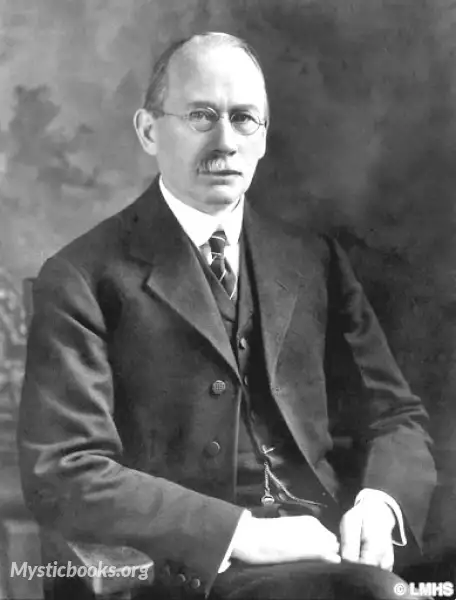
Timeline
Title
Country/Nationality
Rufus Jones
Rufus Matthew Jones was an American religious leader, writer, magazine editor, philosopher, and college professor. He was instrumental in the establishment of the Haverford Emergency Unit (a precursor to the American Friends Service Committee). One of the most influential Quakers of the 20th century, he was a Quaker historian and theologian as well as a philosopher. He is the only person to have delivered two Swarthmore Lectures.
Jones was born into an old Quaker family in South China, Maine where he attended services at the Pond Meeting House and then the newer South China Meeting House. In 1885 he graduated from Haverford College in Pennsylvania, and stayed on to earn his M.A. there in 1886. From 1893 to 1912 he was the editor of the Friends' Review (later called The American Friend); from this position he tried unsuccessfully to unite the divided body of Quakers. In 1901 Jones received another M. A., from Harvard. He also began teaching philosophy and psychology at Haverford in 1893 and continued to do so until retiring in 1934. From 1898 to 1936 he served on the board of trustees of Bryn Mawr College.
In 1917 he helped found the American Friends Service Committee. In 1927 Jones took a trip to Asia at the invitation of the YMCA. His main purpose was to address missionaries in China, but he made stops in Japan, India, and Palestine as well. While in India, Jones visited Mahatma Gandhi and the birthplace of the Buddha. This trip helped Jones formulate a new approach to mission – that of giving humanitarian aid to people while respecting other religions and not aggressively converting people to one's own religion. In 1938 he went with George Walton and D. Robert Yarnall on a mission to Nazi Germany to try to help Jewish people there after the Kristallnacht.
Jones worked hard at soothing some of the hurt from the 19th Century split among Friends and had some success. Jones wrote extensively on the topic of mysticism, which is one of the chief aspects of the Quaker faith. In 1948, he was awarded an honorary Doctor of Letters (Litt.D.) degree from Whittier College.
He distinguished between negating or negative mysticism (making contact with an impersonal force) and affirming or affirmative mysticism (making contact with a personal being). He upheld that God is a personal being with whom human beings could interact. He wrote in The Trail of Life in the Middle Years, "The essential characteristic of [mysticism] is the attainment of a personal conviction by an individual that the human spirit and the divine Spirit have met, have found each other, and are in mutual and reciprocal correspondence as spirit with Spirit." At the same time that he distinguished between negative and affirmative mysticism, he asserted that all negative mystics occasionally take the affirmative approach and that all affirmative mystics tread the negative path from time to time. He exerted a major influence on the life and work of theologian Howard Thurman, who studied with him from 1929–1930.
Jones was a member of the Laymen's Commission that toured mission fields in Asia and produced Re-Thinking Missions: A Laymen's Inquiry after One Hundred Years (1932). The conclusions of this inquiry reflect his views as outlined above.
Jones died in 1948 at age 85, in Haverford, Pennsylvania.
Books by Rufus Jones

The Nature and Authority of Conscience
Rufus Matthew Jones an American religious leader, writer, magazine editor, philosopher, and college professor. He was instrumental in the establishment of the Haverford Emergency Unit (a precursor to the American Friends Service Committee). One of th...

The Story of George Fox
In the midst of religious turmoil and social upheaval, a young man had a revelation that would change the world. The Story of George Fox is a biography of the founder of the Religious Society of Friends, better known as the Quakers. Jones tells the s...

Quakers in the American Colonies
This book provides a comprehensive examination of the Quaker religious movement in the American colonies. It explores the historical and religious contexts of the movement, its impact on the development of American society, and its enduring legacy. T...